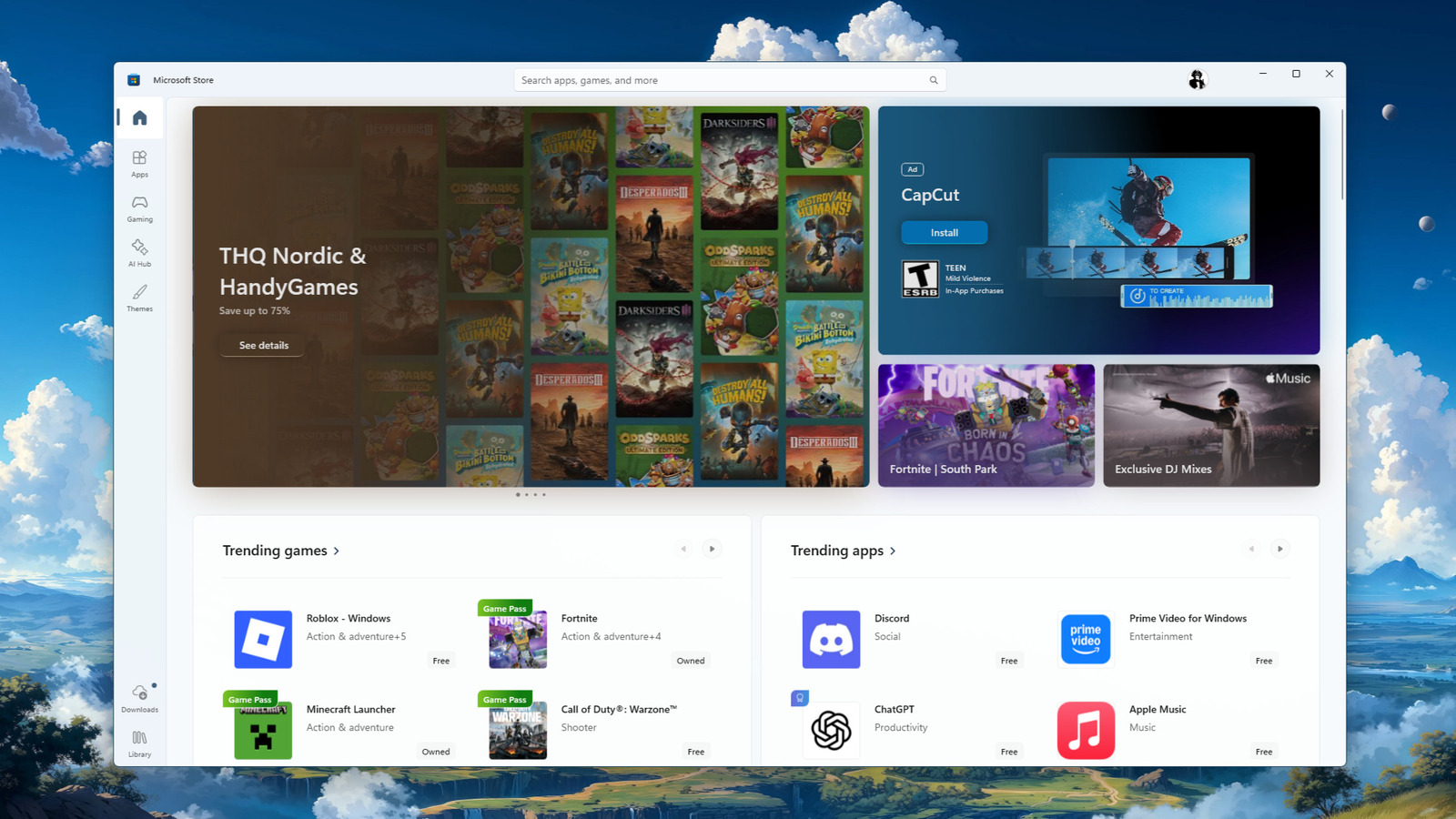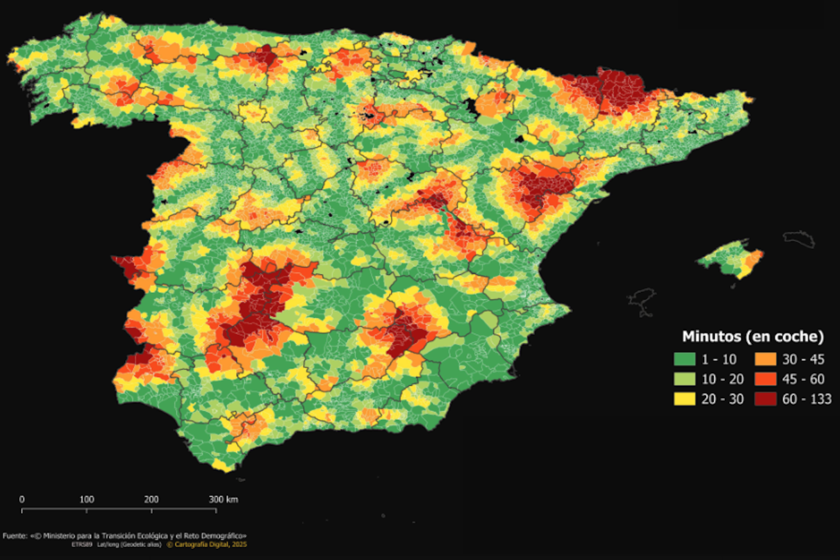It’s been a little over a year since José Andrés García Bueno He assumed management of Qlik in Spain and Portugal. Since then, the company has consolidated its position in the region by promoting advanced analytics projects, cloud modernization and integrated data strategies. With sustained growth and an expanding partner network, Qlik has gone from being a visualization platform to a complete solution that covers the entire data life cycleincorporating artificial intelligence and end-to-end governance capabilities.
In this interview, we analyze the milestones achieved and Qlik’s roadmap for 2026, marked by the integration of Talend and the launch of innovations such as Qlik Open Lakehouse or Qlik Predict. Jose Andrés also reflects on the need to build trust around AI, the importance of data sovereignty in Europe and Qlik’s role in the next big disruption of the sector: agentic artificial intelligence.
(MCPRO) It has been more than a year since your appointment as Country Manager, what have been the main milestones achieved by Qlik in the Iberian region and what can you highlight from the strategic roadmap for 2026 in Spain and Portugal?
(José Andrés García Bueno) During this first year at the helm of Qlik, we have consolidated a sustained growthstrengthening our presence in key sectors and expanding our network of partners in Spain and Portugal. In addition, we have accompanied many organizations in their transition towards data-based decision models, promoting advanced analytics projects and modernization of cloud architectures.
However, our biggest milestone has been showing the true capabilities of Qlik. We have gone from being conceived as a company focused on data visualization and analytics, to an organization that acts on the entire data life cycle and that has extensive artificial intelligence capabilities.
Looking ahead to 2026, we want to continue advancing this idea and reinforce our identity as a global company with European origins, with an innovative and interoperable DNA that avoid vendor lock-in. In addition, we will continue to launch new capabilities, such as the recently announced Qlik Open Lakehouse or Qlik Predict, to improve our portfolio and anticipate meeting all of our customers’ needs.
(MCPRO) How is the integration of Talend (acquired in May 2023) impacting Qlik’s value proposition for its Spanish clients? What specific use cases are being developed that were not possible before?
(José Andrés García Bueno) The integration of Talend has decisively strengthened our value proposition, since it allows us to offer a truly unified platform to manage the entire data life cycle: from its integration and quality to its analysis and consumption. Thanks to this acquisition, clients can address their data strategies in a more agile way, guaranteeing reliability, traceability and governance in increasingly complex and hybrid environments.
In Spain we are already seeing a strong push in projects that combine integration, quality and real-time analytics, something that previously required fragmented solutions. For example, use cases aimed at the creation of corporate data fabrics, the automation of data governance processes or the application of artificial intelligence on integrated and trusted data.
(MCPRO) A recent study by Qlik reveals that 61% of Spanish companies are reducing their investment in AI due to trust issues. Given the caution of Spanish companies towards AI, what strategy is Qlik following to generate trust and accelerate the adoption of solutions based on artificial intelligence in our market?
(José Andrés García Bueno) At Qlik we are aware that Trust is the key factor for artificial intelligence to be effectively adopted in companies. Therefore, our strategy focuses on offering transparent, explainable and governed AI, integrating augmented analytics capabilities that allow users to understand and validate results before making decisions.
In addition, we work closely with our clients to ensure that the data on which AI is based is high quality and reliable, relying on our complete platform that spans the entire data lifecycle. This allows organizations to experiment with AI projects in a safe and scalable way, minimizing risks and fostering confidence in the results.
In Spain, our approach has translated into the implementation of very specific use cases, such as demand prediction in industrial sectors or the optimization of financial processes, where the results are easily verifiable and generate tangible value from the first moment. The combination of transparency, control and measurable results is, for us, the best way to accelerate the adoption of AI in a responsible way
(MCPRO) In a context where data sovereignty is critical for European companies, how does Qlik differentiate its proposal compared to global competitors? What specific capabilities do they offer to ensure regulatory compliance?
(José Andrés García Bueno) In Qlik We do not compromise data sovereignty: the data is the property of the client, who maintains full control over it. Our platform allows organizations to choose where their data resides and run governed, compliant analytics in fully encrypted, European-controlled environments. We have four cloud regions in Europe, Ireland, Germany, the United Kingdom and Sweden, with more to come soon, and we offer flexible deployment options to adapt to the needs of the most regulated sectors.
Additionally, through strategic partnerships, customers can leverage advanced cloud and analytics technologies without compromising sovereignty or compliance. Specific functionalities ensure that all data owned by the client is encrypted,
Qlik does not host them or have access to their content. Additionally, we participate in the EU-US Data Privacy Framework, protecting European personal data that is transferred to our subsidiaries in the United States.
In this way, Qlik combines control, security and regulatory compliance, differentiating itself from many global competitors that depend on centralized environments outside Europe.
(MCPRO) We have seen great projects with Caixabank or SEAT in recent months. These success stories demonstrate large-scale implementations with measurable results. Can we cite a more recent one? What key factors have enabled these successful digital transformations and how can they be replicated in other sectors?
(José Andrés García Bueno) More than 40,000 customers find answers with Qlik solutions. We have clients with incredibly inspiring use cases, and from sectors from transportation and logistics to healthcare, pharmaceuticals and manufacturing, banking and the public sector. All of them show the power that Qlik offers to transform data.
I would say that the key success factors in digital transformations with Qlik are having leadership with a vision and data culture, having integrated, governed and accessible data and being clear about the objective and the real needs that you want to solve.
(MCPRO) Qlik has maintained its leadership position in the Magic Quadrant for 14 years, but what is Qlik’s differentiation strategy compared to competitors such as Power BI and Tableau? In what specific scenarios do you see Qlik offering decisive advantages?
(José Andrés García Bueno) Qlik’s leadership position for 14 consecutive years in the Gartner Magic Quadrant reflects the strength of a proposition that goes far beyond visualization. Our main difference compared to competitors is that Qlik covers the entire data life cycle, from its integration and quality to its advanced analysis and real-time use, within a single platform.
While other solutions focus primarily on the visualization layer, Qlik combines integration, governance, analytics, and automation in a unified, interoperable, and AI-ready environment. This allows organizations to act on data, not just analyze it, and do so with full control over its provenance, quality and regulatory compliance.
The advantages are especially clear in complex scenarios, such as hybrid or multi-cloud environments, data quality and governance projects, or real-time analytics initiatives, where Qlik’s ability to orchestrate dispersed data and deliver reliable information immediately makes the difference.
(MCPRO) How is Qlik positioning itself in the face of these new data architectures? What role does Qlik Open Lakehouse play in the company’s strategy to modernize enterprise data management?
(José Andrés García Bueno) Qlik is positioning itself as a benchmark in the modernization of open data architectures, helping organizations create a solid, real-time and artificial intelligence-ready foundation. In this context, Qlik Open Lakehouse represents a key step in our strategy: a fully managed solution based on Apache Iceberg, integrated into Qlik Talend Cloud, which allows combining integration, quality and analytics on the same platform without generating technological dependency.
Qlik’s proposal stands out for its open, governed and real-time approach.
In practice, this translates into a truly interoperable architecture, with Change Data Capture (CDC) data ingestion, automatic Iceberg optimization, and built-in data quality. The result is a fast, reliable, AI-ready data environment with a lower total cost of ownership that eliminates the limitations of traditional data warehouses.
(MCPRO) How is the democratization of data evolving in Spanish organizations? What barriers remain and how is Qlik addressing them with its self-service solutions?
(José Andrés García Bueno) The democratization of data is advancing strongly in Spanish organizations, but there are still important barriers, especially cultural and governance. Many companies already recognize the value of data, but are still in the process of turning it into a truly accessible and useful resource for all levels of the business.
At Qlik we believe that The key is to balance autonomy and control. Our self-service solutions allow any user, without the need for advanced technical knowledge, to explore and analyze data with complete freedom, but within a governed framework that guarantees the quality, traceability and security of the information.
The adoption of data literacy models, along with Qlik’s augmented analytics and built-in AI capabilities, is helping employees trust data more and make informed decisions in real time. In this way, we are moving from organizations where data was concentrated in technical areas, to companies where data-based intelligence is part of the daily life of all teams.
(MCPRO) Let’s take a look at the future to finish. Thinking towards 2026-2027, what do you consider to be the most disruptive trends in the Business Intelligence sector? How is Qlik preparing to lead in these new areas, especially in agentic AI?
(José Andrés García Bueno) Looking ahead to 2026–2027, we will see a profound transformation of the Business Intelligence sectorwith major trends such as convergence between analytics, automation and artificial intelligence, the rise of agentic AI and the consolidation of open and interoperable data architectures.
Agentic AI, in particular, is going to redefine the relationship between people and data. We will go from consulting dashboards to interacting with intelligent agents capable of understanding the business context, generating analysis autonomously and executing actions directly on corporate systems. In this new scenario, Qlik’s role will be to adapt to market demand and customer needs.
Our goal is for organizations to not only analyze what has happened, but to anticipate what is going to happen and act proactively, all while maintaining control, traceability and trust in the data.










